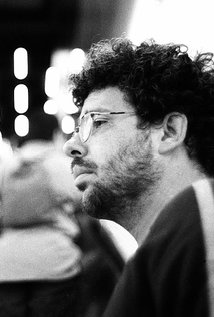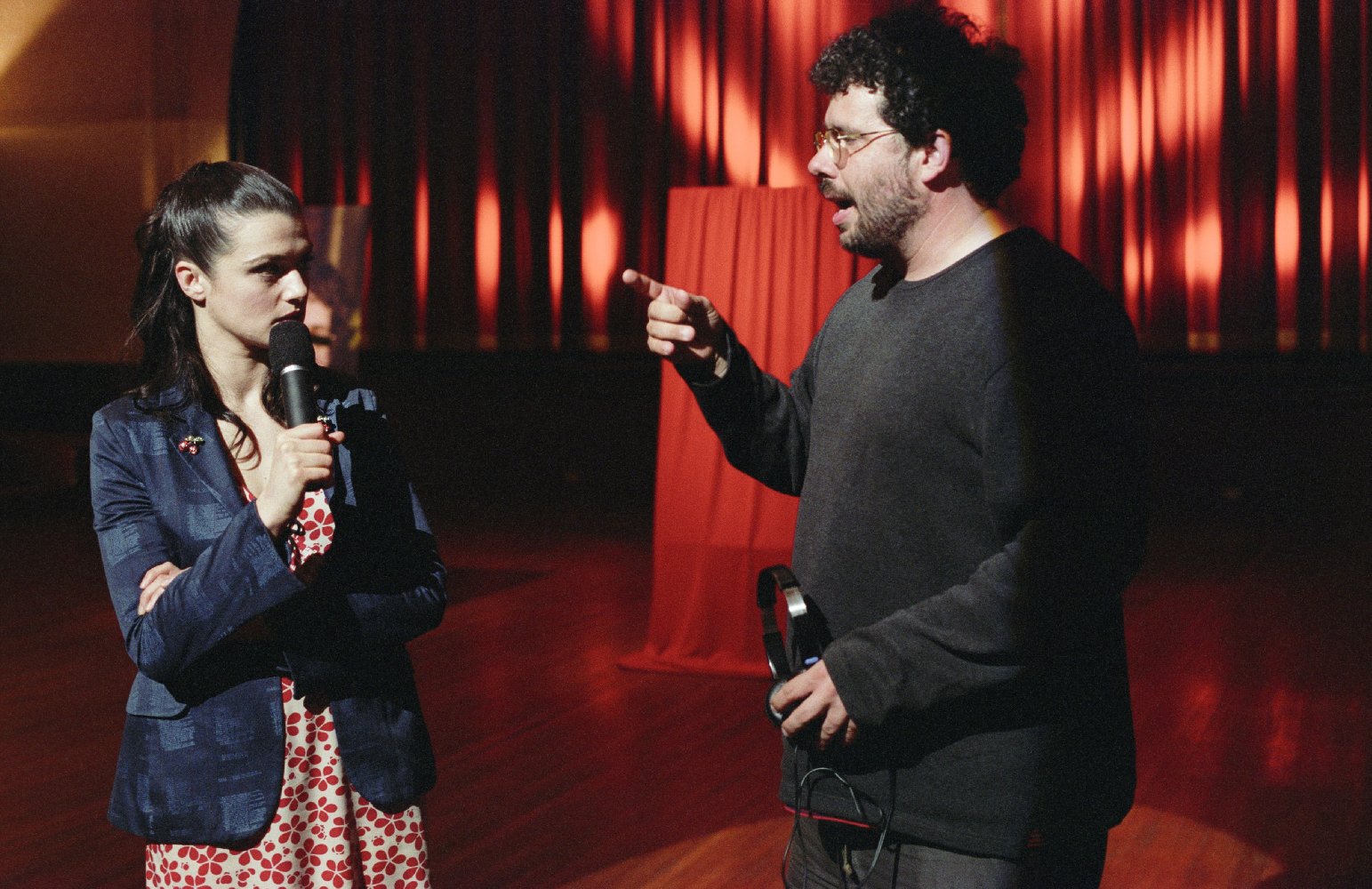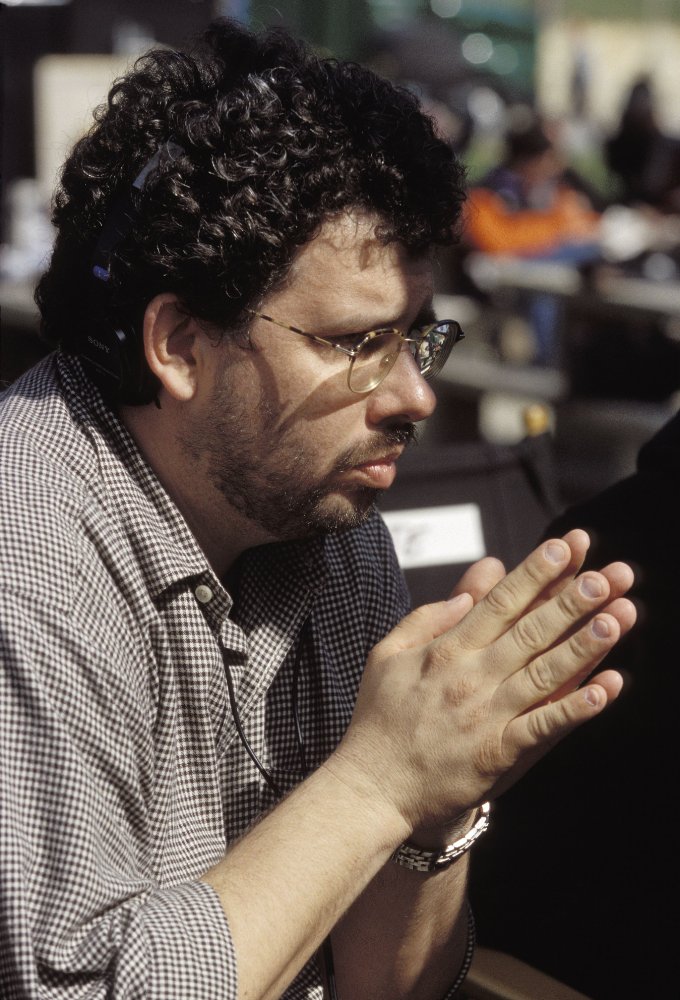
Neil LaBute
Birthday:
19 March 1963, Detroit, Michigan, USA
Height:
183 cm
Acclaimed and highly discussed filmmaker Neil LaBute has made himself a force to be reckoned with and a name to watch. With his true-to-life cynical and self-absorbed characters and all-too-true social themes, he has firmly established himself as an unforgiving judge of the ugliest side of human nature.LaBute was originally a playwright. He attende...
Show more »
Acclaimed and highly discussed filmmaker Neil LaBute has made himself a force to be reckoned with and a name to watch. With his true-to-life cynical and self-absorbed characters and all-too-true social themes, he has firmly established himself as an unforgiving judge of the ugliest side of human nature.LaBute was originally a playwright. He attended Brigham Young University and took theater as his major. Many say that Pulitzer-Prize winner David Mamet was a strong influence on him. He chose to attack subjects that many people don't really want to talk about and showed the way that people really talk among themselves. His first stage piece, an off-off-Broadway play which was entitled "Filthy Talk for Troubled Times", debuted in 1990 and it featured two men just sitting around a bar and making small talk and ridiculing women, minorities, homosexuals and their ways, in a manner not unlike the conversations in his In the Company of Men (1997). The foul-mouthed play was, not unsurprisingly, a hit with the critics.After LaBute graduated from the University of Kansas and New York University, he got a scholarship to London's Royal Court Theatre in the US in Chicago, Los Angeles and New York City. Then he got into cinema. He made his films like his plays: showing characters just sitting and talking and revealing how evil, scared, ignorant, arrogant, emotionally wounded, delusional, disillusioned and cynical they are.LaBute made his first major mark with the low-budget (and frighteningly realistic) cautionary fable In the Company of Men (1997), about two sexist male office co-workers fed up with what they believe is the way women have taken over American society and how it is no longer a man's world. They set out to find a vulnerable woman - one looking for male attention - and wine her, dine her, then cruelly dump her, just to gain some "dignity" for their gender. Shot for $25,000 in less than two weeks, the film won the Sundance Filmmaker's trophy, awards for LaBute's screenplay and the star Aaron Eckhart's performance as a heartless and misogynist creep with ambition and cockiness to spare.His next movie and sophomore cinema effort, Your Friends & Neighbors (1998), was considerably less well-received (a casualty of what is often referred to as "the sophomore jinx"). The film was about a group of six very different, but misanthropic people (three men and three women) connected by their relationships; when unhappy in them, they begin to shamelessly lie and cheat on one another with their lovers, and even with their friends. The movie got some strong reviews, but other reviewers felt LaBute was pretty much repeating himself. The prevailing attitude seeming to be that this time he had made an entire movie with all of its characters being nothing but villains, so why should anyone care about or want these six unlike-able people to ever find happiness?Nurse Betty (2000) was LaBute's next directorial effort, from a script he didn't write himself. It was was a radical departure from LaBute's other work, about a sweet-nature waitress obsessed with a particular soap opera and especially the show's star, George McCord (Greg Kinnear). The film received the Cannes Film Festival's Best Screenplay trophy for its authors. Renée Zellweger was honored with a Golden Globe Award. LaBute had finally made a good-nature, mainstream film, and a damn good one, but he didn't spend ALL his time basking - he had put out several other things that year, such as a TV movie based on his "Bash" plays and another original work entitled Tumble (2000), none of which got wide recognition. In 2002 LaBute got himself noticed again with another less-caustic movie - a costume period piece called Possession (2002), based on the best-selling novel, which many believed to be about his love for early English culture. It starred LaBute stalwart Eckhart and Gwyneth Paltrow, who specializes in having the most authentic sounding British accent around. It wasn't a huge box-office success, but it did have many fervent admirers.In 2003 LaBute brought to the screen another adaptation of his own work, a play he wrote and directed and had performed in England. He brought his original cast (Paul Rudd, Rachel Weisz, Gretchen Mol and Frederick Weller) back to appear in this one. It was entitled The Shape of Things (2003), about how a seductive art student, named Evelyn, takes Paul, a nerdy, insecure, out-of-shape guy, and begins molding him to look more and more desirable, much to the confusion of his friends. He enjoys being desirable, but is unaware of where all this remodeling will lead as Evelyn gets more and more possessive and controlling. With pieces like "In the Company of Men" and Your Friends & Neighbors (1998), LaBute has proven that he has his hand on the pulse of everyday people (not heroes or villains), just people who sound and behave often horribly for no reason, and you cringe all the more because you know and identify with them. With "Nurse Betty" and "Possession", however, LaBute has shown that he has more than just one really incredibly note. He's no one-hit wonder. Here is a man whose entire body of work should be watched and studied by all. Show less «
I start writing about people. If they stay in the house, I say, "This is shaping up to be a play." If they go out to the car, to the grocery...Show more »
I start writing about people. If they stay in the house, I say, "This is shaping up to be a play." If they go out to the car, to the grocery store, then I say, "I think it's going to be a film." Show less «
[on why he writes his plays and screenplays with strong misanthropic tones] I take no pleasure in it, but I'm not afraid of it. Entertainmen...Show more »
[on why he writes his plays and screenplays with strong misanthropic tones] I take no pleasure in it, but I'm not afraid of it. Entertainment should be good, not nice and carefree. Show less «
But that's the beauty and the damning thing in theater, is that what you see will never be seen by anybody else on another night. And when i...Show more »
But that's the beauty and the damning thing in theater, is that what you see will never be seen by anybody else on another night. And when it closes, it's gone. On film you can go back and watch it over and over, but it doesn't change. Show less «
I think everybody has a place in an art gallery, they just should keep their mouths shut. They're free to walk around as long as they pay th...Show more »
I think everybody has a place in an art gallery, they just should keep their mouths shut. They're free to walk around as long as they pay the price, I just don't think they should be dictating policy. I'm big on what the argument the film proposes about subjectivity about art itself. This... [picks up glass of water] can be art because you made it, or it can be a glass of water to me and I can think you're a loon for calling it art, and we could both be right. Show less «
Sometimes I think it's hard for an audience to know when to laugh. It's such an immediate and spontaneous response, and sometimes we're dict...Show more »
Sometimes I think it's hard for an audience to know when to laugh. It's such an immediate and spontaneous response, and sometimes we're dictated by who we're with and the general public, and if everybody else is not laughing, it can sometimes quell the feeling inside you and you put a damper on it. Show less «
I don't have a right way that I go about things. I'm not very good at working consistently... The actual planning out of something tends to ...Show more »
I don't have a right way that I go about things. I'm not very good at working consistently... The actual planning out of something tends to go on in my head rather than me doing lines between things happening. I'm not good with a trail of Post-its to tell me what scene I need next. I like to finish a scene and then figure out what happens next and find my way to it. If it's not coming, then I walk away from it. I don't find great value in "I must write five pages everyday" because those five pages usually turn into place mats. There's nothing worse than staring at a blank screen and trying to be funny or profound or any of those things. It comes when it does. Show less «
And I also don't think that my work will change your life. I think that at its best, it will raise new questions, give you an alternative vi...Show more »
And I also don't think that my work will change your life. I think that at its best, it will raise new questions, give you an alternative view of something and perhaps over time that might lead you to greater understanding about something. But in terms of changing someone's opinion, that's a tall order and I don't see how, in an hour and a half or two hours, that's likely to happen. Show less «
I don't shy away from subjects that come to me - and once I decide to do a subject, I don't pull back - but I'm not consciously stirring the...Show more »
I don't shy away from subjects that come to me - and once I decide to do a subject, I don't pull back - but I'm not consciously stirring the pot or ripping stories out of the headlines to create tension and thus shine the light on me. Show less «
My plays are polarizing. People love them or loathe them. I don't care which.
My plays are polarizing. People love them or loathe them. I don't care which.
(On The Soft Skin) It's nice when somebody's actually so bold as to do something so obvious. We're always so worried about being so subtle, ...Show more »
(On The Soft Skin) It's nice when somebody's actually so bold as to do something so obvious. We're always so worried about being so subtle, and "Oh, is this a cliché?" I think life is often a cliché; you find yourself in moments where you go, "If this was in a movie, people would say this is ridiculous, this is too much." And yet, it happens all the time. Show less «
The first great lesson I learned - many years ago - is be patient. The first play I had that was optioned by filmmakers was called "Rounder....Show more »
The first great lesson I learned - many years ago - is be patient. The first play I had that was optioned by filmmakers was called "Rounder." It was a piece that eventually became the play "The Distance From Here." I waited a year for a film to get made, which never happened. I finally got frustrated enough to make my own film, In the Company of Men (1997) In a way, the second great lesson should read: Be impatient. Show less «
















